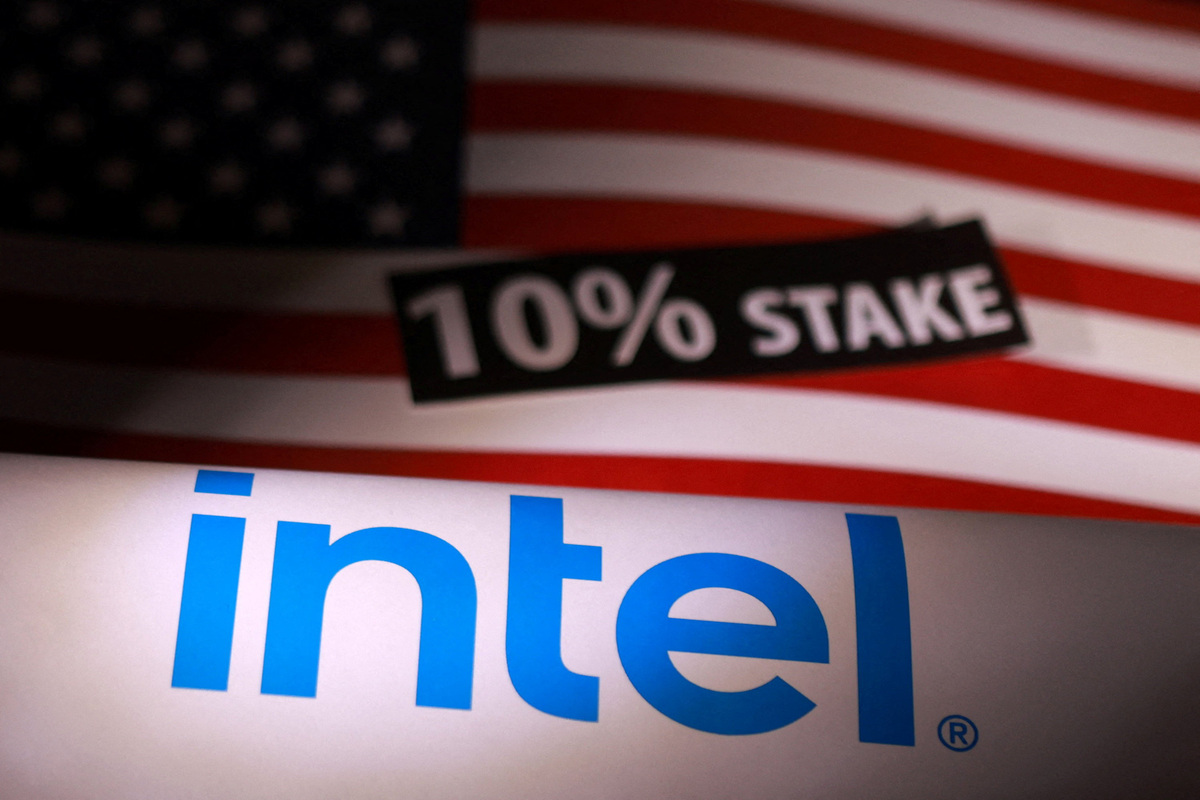In a bold and unconventional move, the US government will acquire a nearly 10% ownership in Intel Corporation, using public funding originally allocated through federal programs. The $8.9 billion transaction will convert outstanding grants from the CHIPS Act and Department of Defense into a direct equity stake in the struggling semiconductor giant.
The government will purchase approximately 433.3 million shares at $20.47 apiece nearly $4 below Intel’s closing stock price of $24.80 on Friday securing a 9.9% share in the company. This investment includes $5.7 billion in CHIPS Act funding and $3.2 billion previously committed under the Secure Enclave initiative.
President Donald Trump personally confirmed the acquisition on Friday, stating on Truth Social, “It is my Great Honour to report that the United States of America now fully owns and controls 10% of INTEL, a Great American Company that has an even more incredible future.” During a public appearance, he recounted his meeting with Intel’s chief executive, saying, “I said, I think you should pay us 10% of your company. And they said yes.”
Intel CEO, Trump Agree on Deal
This government intervention comes just days after Trump criticised CEO Lip-Bu Tan and called for his resignation due to alleged affiliations with Chinese tech firms. Despite the tension, the two met again at the White House on August 22 to finalise the terms of the deal. Trump later remarked, “He walked in wanting to keep his job and he ended up giving us $10 billion for the United States.”
Commerce Secretary Howard Lutnick publicly praised the deal, calling it “fair to Intel and fair to the American People.” On X (formerly Twitter), he noted, “This historic agreement strengthens US leadership in semiconductors, which will both grow our economy and help secure America’s technological edge.”
Intel clarified that the US government’s involvement will remain passive there will be no government representation on the board, and Washington will not receive special governance rights. However, a clause in the agreement allows the government to purchase an additional 5% of Intel stock at $20 per share within five years, but only if Intel loses control of its foundry business.
CEO Lip-Bu Tan commented cautiously on the partnership: “We are grateful for the confidence the president and the administration have placed in Intel.” In a company press release, he added, “As the only semiconductor company that does leading-edge logic R&D and manufacturing in the US, Intel is deeply committed to ensuring the world’s most advanced technologies are American made.”
$18.8B Loss Hits Intel Hard
Intel’s financial struggles have become increasingly pronounced. The company posted an $18.8 billion loss in 2024 its worst annual performance since 1986. Since 2021, its free cash flow has remained negative, and its manufacturing ambitions have been hindered by delays and insufficient capital. The new investment is expected to accelerate construction of key US fabrication facilities, including a delayed plant in Ohio.
The stock market responded positively to the announcement, with Intel shares climbing 5.5% during regular trading hours and another 1% after hours.
While this deal injects much-needed capital into Intel, industry analysts are skeptical about whether funding alone can reverse the company’s declining position. Daniel Morgan of Synovus Trust expressed concern about Intel’s foundry business, saying, “Without government support or another financially stronger partner, it will be difficult for the Intel foundry unit to raise enough capital to continue to build out more Fabs at a reasonable rate.” He added that Intel still needs to “catch up with TSMC from a technological perspective to attract business.”
The government’s growing involvement in strategic industries under Trump has not gone unnoticed. Earlier this year, the administration brokered a deal with Nvidia and AMD allowing them to continue limited AI chip exports to China in exchange for a 15% levy on those sales. Washington also secured a “golden share” in US Steel as part of its acquisition by Japan’s Nippon Steel and became the largest stakeholder in rare-earth producer MP Materials.
Intel Gets $2B Boost from SoftBank
SoftBank, another significant investor, recently announced a $2 billion stake in Intel. However, many in the tech sector argue that money alone won’t fix Intel’s lag in innovation. Despite years of investment, the company still trails AMD in CPU performance and has fallen far behind Nvidia in the AI chip race.
Though the Trump administration has yet to detail whether it intends to take a more active role in Intel’s strategy, the president has hinted that similar deals may follow. According to two people familiar with White House discussions, officials are already considering taking equity stakes in other key American firms across critical industries.
Treasury Secretary Scott Bessent recently explained the motive behind this move on CNBC: “America should get the benefit of the bargain.” However, he insisted there will be no pressure on U.S. firms to favor Intel’s products: “The last thing we’re going to do is take the stake and then try to drum up business.”
As the global semiconductor race intensifies, the administration’s deal with Intel signals a new era of federal involvement in the business of technology. Whether this historic bet pays off for both Intel and the country remains to be seen.


